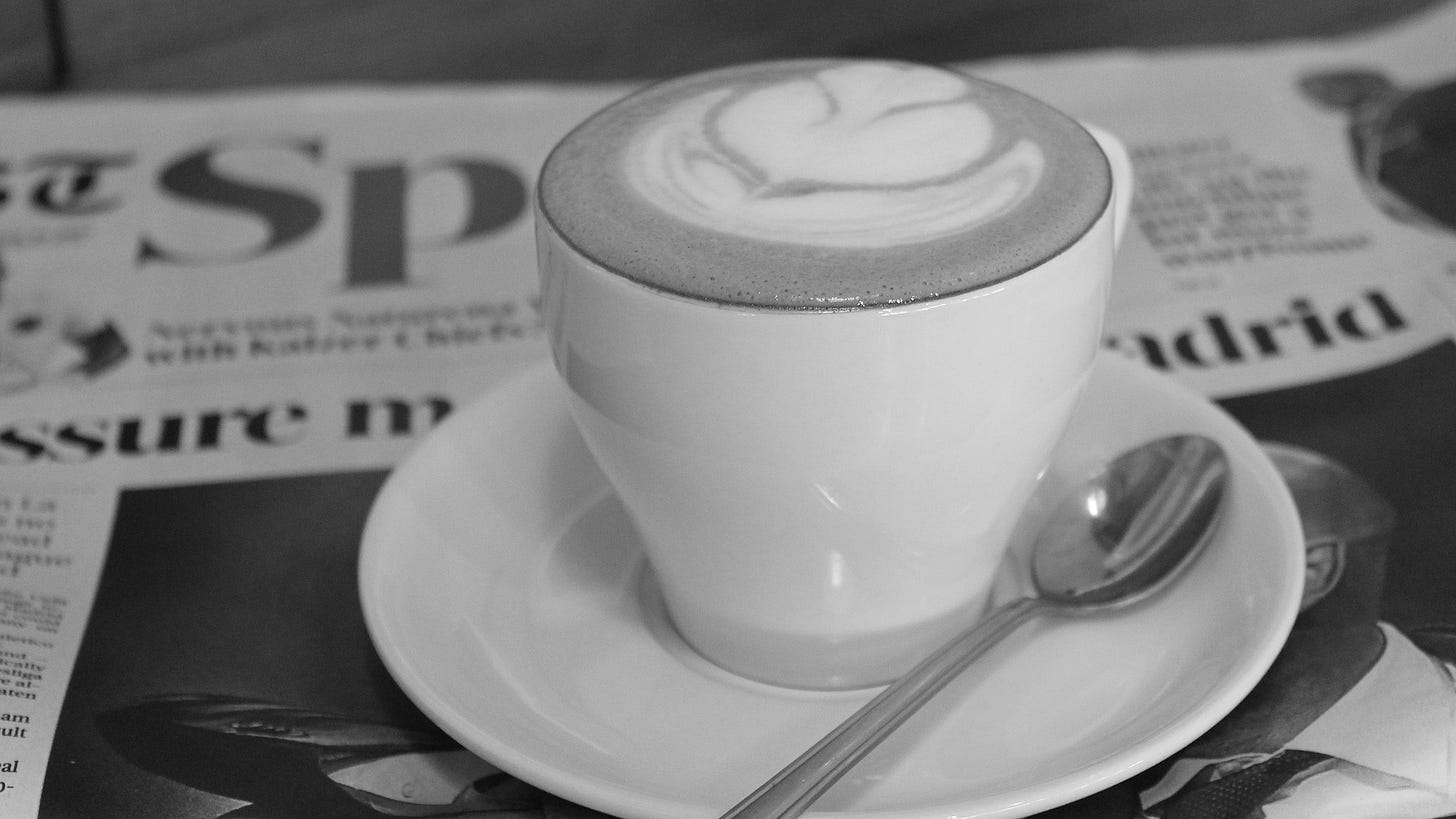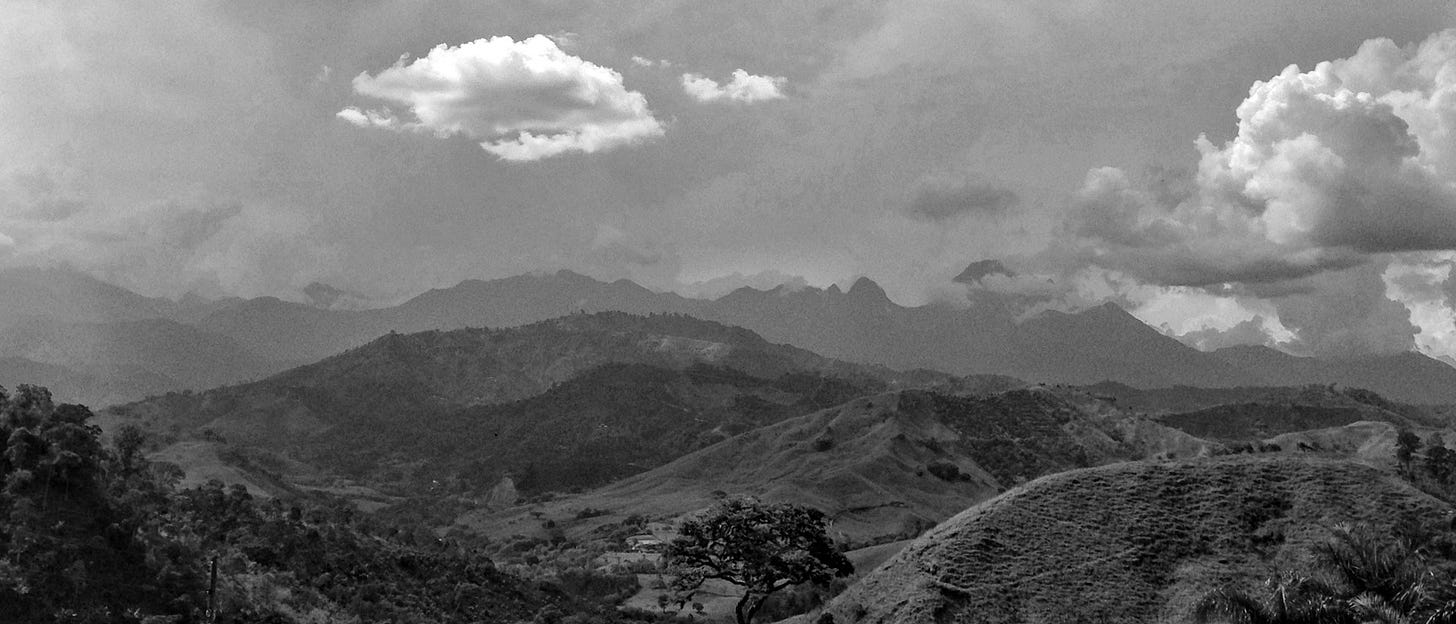Coffee News Roundup: Week Ending July 9th
With apologies for the lateness, this week we look at Brazil's shipping problems (as well as its twin issues of drought and frost) while Compass Coffee turns its baristas into construction workers.
Hello and welcome to the (extremely late) Coffee News Roundup.
Let’s see what’s been going on in the world of coffee this week.
Shipping Turmoil Threatens Coffee From World’s Biggest Grower Brazil - Via Bloomberg
Getting coffee from the hills and fields where it is grown to the barista’s grinder is a complicated and arduous task. The coffee’s voyage across the sea is one of the most critical, and most expensive, parts of this journey.
Before the pandemic, according to Bloomberg, shipping a container of coffee from Brazil to New Orleans cost between $1,500 and $2,000. Now, according to a representative from the Brazilian coffee exporter group CeCafe, that same container costs $4,000.
This is because of logistical bottlenecks and increased competition for container space as economies reopen and demand rebounds. Apparently this is causing bookings from earlier, when rates were cheaper, to be cancelled by shipping companies eager to earn extra for their services.
As we will see later on, these shipping issues are one of a number of reasons for the increase in coffee’s price over the past few months.
Why This Coffee Shop Turned Its Baristas Into Construction Workers During COVID-19 - Via Fast Company
The cynical take here is that it was cheaper.
The more optimistic view is that Compass Coffee, a specialty mini-chain with 13 locations around the Washington, DC area, wanted to keep its workers employed while teaching them new skills at a time when it had laid off 80% of its workforce in the wake of the COVID-19 pandemic.
Compass’ new roasting facility, all 65,000 square feet of it, was largely built with the help of 20 baristas who agreed to come back to work on the project, learning construction and equipment installation. And now that the work is complete, those baristas will have the opportunity to continue using the skills they learned on other Compass projects, according to Fast Company.
One funny thing to note: the article goes out of its way to devote several paragraphs to something called Autodesk, a company that makes 3D design, engineering and construction models. It apparently helped Compass Coffee’s Head Designer to illustrate the project to his newbie crew. This quote, though:
It’s not unheard of for non-designers to use these kinds of design tools, [Nicolas Mangon, a vice president at Autodesk] says. The U.S. Navy Seals reportedly used Autodesk modeling tools to plan out the raid that killed Osama Bin Laden.
The stakes were somewhat lower for Compass Coffee’s project, but not completely risk-free.
Well, quite.
More Headlines
Ethiopia’s Forest Coffee Initiative Seeks To Protect And Promote
Plymouth Coffee Shop Fined £42K For Covid Breach
Coffee And The Climate Crisis
Due to the fact that each week there seems to be a number of news stories focusing on the ways coffee is being impacted by the worsening climate crisis, it seemed like a good idea to launch a new segment.
So: coffee farms in Brazil are dealing with yet more inclement weather, this time in the form of frost. Already suffering from drought, the frost caused damage in several parts of southeastern Brazil including “the west and north of Sao Paulo state, the Minas Gerais triangle, the southwest of Goias, and some areas of southern Minas Gerais state,” according to Reuters. Per Sprudge, it’s two years since Brazil was last hit with untimely frost (in fact I wrote that article) and this year’s cold snap could impact future harvests due to the way frost inhibits coffee trees’ ability to grow and produce.
Canada’s CBC reported this week that drought in Brazil is pushing coffee prices higher, citing rainfall in Minas Gerais that was “the lowest on record in the summer months” and that could “put world supply below demand for the first time in years.”
Meanwhile, Business Insider is more concerned that such things as droughts in producing countries, coffee leaf rust, and pandemic-related shipping delays are going to impact the cost of coffee for us latte-sipping consumers. The article seeks to blame, in part, “record-breaking drought in Colombia” that I couldn’t find any evidence for (it’s possible they mean Brazil). Either way, it’s the consumer who will suffer.
But also, it’s the consumer’s responsibility to fix it. Case in point:
The Week In Corporate Coffeewashing
I’m not sure at what point I should stop going on about Nestlé. If you don’t know by now that they’re bad, or don’t agree, am I really going to change your mind?
Anyway, this week they’ve announced the winners of their 2021 Creating Shared Value (CVS) Prize: Promesa, a Mexico-based social organization which won the chance to partner with Nestlé to improve the company’s “coffee capsule collection strategy and amplify its capsule recycling campaign through Promesa’s web portal.”
Promesa, which educates Mexican youth about global waste and recycles waste itself, is not the issue, of course. It’s just… being used. According to some guy at Nestlé, “Promesa is a great example of how educating consumers and providing them with simple ways to recycle can have a big impact on reducing waste.”
Because, of course, it’s the consumer’s job to do the recycling and reduce waste. Not the multi-billion-dollar drinks conglomerate that was in the top three plastic polluters in the world in 2020.
Is Coffee Good For You?
Nothing new this week, but I recommend this long read article from Michael Pollan in The Guardian on the history and impacts of caffeinating the human mind, and whether it might be a good idea to stop.
Humanity’s acquaintance with caffeine is surprisingly recent. But it is hardly an exaggeration to say that this molecule remade the world. The changes wrought by coffee and tea occurred at a fundamental level – the level of the human mind. Coffee and tea ushered in a shift in the mental weather, sharpening minds that had been fogged by alcohol, freeing people from the natural rhythms of the body and the sun, thus making possible whole new kinds of work and, arguably, new kinds of thought, too.
What To Read
Coffee Basics: What Is Arabica Coffee? by Liz Clayton
Singapore’s Last Traditional Coffee Roasters May Soon Disappear by Rachel Phua
Until next week, as always, drink good coffee.






